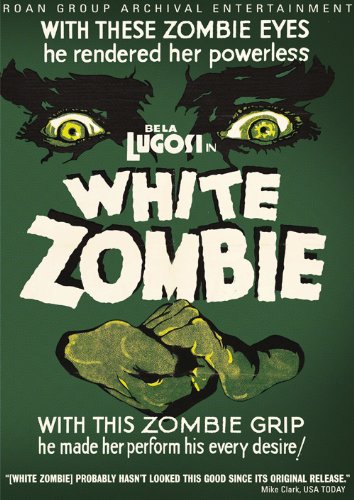BU Humanists at Work: Meet Maia Gil’Adí, Assistant Professor of English
Assistant Professor of English Maia Gil’Adí is a big horror fan, but her studies of the genre reach beyond the typical slasher flick.

“I’m a consumer of all types of horror from the most basic to the most disgusting. I love it all,” Gil’Adí said, “but the horror that I study isn’t necessarily the type that we would think about at first, you know—Freddy Krueger and Michael Myers,” said Gil’Adí. Instead Gil’Adí examines the real and present horrors in our world today. Racism and sexual violence remain tragically commonplace, and Gil’Adí believes the horror genre allows writers to spotlight just how horrific these parts of the world really are. Gil’Adí reflected on the fact that instances of historic and continued violence and discrimination are “so excessive, so repetitive, so mundane that they require the lens of horror to examine them.”
For Gil’Adí, horror presents a secure basis from which to view the violent and scary. She acknowledged that the odd fascination with and even attraction to horror comes from the creation of distance between the viewer or reader and the actual events of a piece of media. “Horror presents these things that should be taboo or that we should look away from, but they draw us in,” she noted. She hypothesizes that this ability to view and experience terrible things from a safe distance provides a form of catharsis. “It allows us to find pleasure in things we shouldn’t find pleasure in,” said Gil’Adí. “It lets us say: that happened, and now we don’t have to do it ourselves.”
Perhaps it is this attraction to horror that has drawn students to Gil’Adí’s courses on Latinx horror and speculative fiction. Since starting at BU, Gil’Adí has been thrilled to see the number of students interested in multiethnic and Latinx literature. “The level of curiosity and intellectual generosity here has been really wonderful,” she said.
By using horror as a lens through which to view the forbidden or painful, Gil’Adí encourages students to take on the monsters and specters that haunt the Americas. A Caracas native, Gil’Adí specializes in Latinx literature, which has its fair share of monsters. She pointed to such legends as the Chupacabra, La Llorona, and La Ciguapa as examples of monsters from Latinx cultures, but she is mainly interested in a different kind of monster: history.
“There’s a great poem by Fanny Choi called ‘The World Keeps Ending and the World Goes On.’ We cannot think about the history of people of color in the Americas without thinking of the multiple apocalypses that have happened,” Gil’Adí said, referring to colonization, displacement, enslavement, and continued violence toward people of color today. “The convergence of horror and Latinx history or culture happens in these historical markers,” said Gil’Adí. “I like to look at these historical moments as the monsters.”
Gil’Adí is working on transforming her scholarship on depiction of violence in Latinx fiction into a book, currently entitled Doom Patterns. One idea she treats is the question of form, and she says that “form makes moments of destruction in the text evident. It keeps returning us to both pleasure and violence.” This sort of cyclical narrative pulls the reader back into cycles of violence and the persistence or remembrance of cataclysm. Gil’Adí is also interested in the “paradoxical pleasure” present in these representations of violence, an element that ties back to the idea of fiction as a simultaneous escape from and experience of violence.
After teaching at University of Massachusetts Lowell for four years, Gil’Adí joined the BU English department this past semester. “It’s been such a great transition,” said Gil’Adí, “There are so many resources. My new colleagues are so welcoming, and I’ve loved exploring all the possibilities across the university and becoming a part of this intellectual community.” Gil’Adí is also an affiliated faculty member with both the American & New England Studies and Latin American Studies programs.
Gil’Adí is currently teaching two classes in the English department, the first a seminar on Reading in the (Post)Apocalypse where she asks students to rethink the idea of the (post)apocalypse in the face of the ongoing apocalypse that is imperial, racial, and ethno-national violence. Gil’Adí also teaches Multiethnic Speculative Fiction, which explores how people of color have used the speculative to reimagine the circumstances of the world at-large. She sees these classes as gateways to a larger multiethnic literary tradition. Gil’Adí encourages students to “read more Latinx literature because there’s a lot of it, and it’s really good.”
When asked about her own favorite monster, Gil’Adí was quick to respond:
 “The zombie. This geographically specifically-created monster has been totally whitewashed, and white consumer culture has taken it over,” she noted. The zombie comes from Haitian folklore, in which zombies were enslaved Africans who had died and been reanimated to work on plantations, even after death. “I would love for people to check out my zombie archive, which is a work in progress,” Gil’Adí said. The archive currently includes a timeline of zombie films dating back to the first zombie film from 1932.
“The zombie. This geographically specifically-created monster has been totally whitewashed, and white consumer culture has taken it over,” she noted. The zombie comes from Haitian folklore, in which zombies were enslaved Africans who had died and been reanimated to work on plantations, even after death. “I would love for people to check out my zombie archive, which is a work in progress,” Gil’Adí said. The archive currently includes a timeline of zombie films dating back to the first zombie film from 1932.
Though she arrived just last semester, Gil’Adí is fully prepared to tangle with the horrors that continue to affect society today, and she is excited to talk to students about the importance of horror, especially when the genre subverts their expectations.